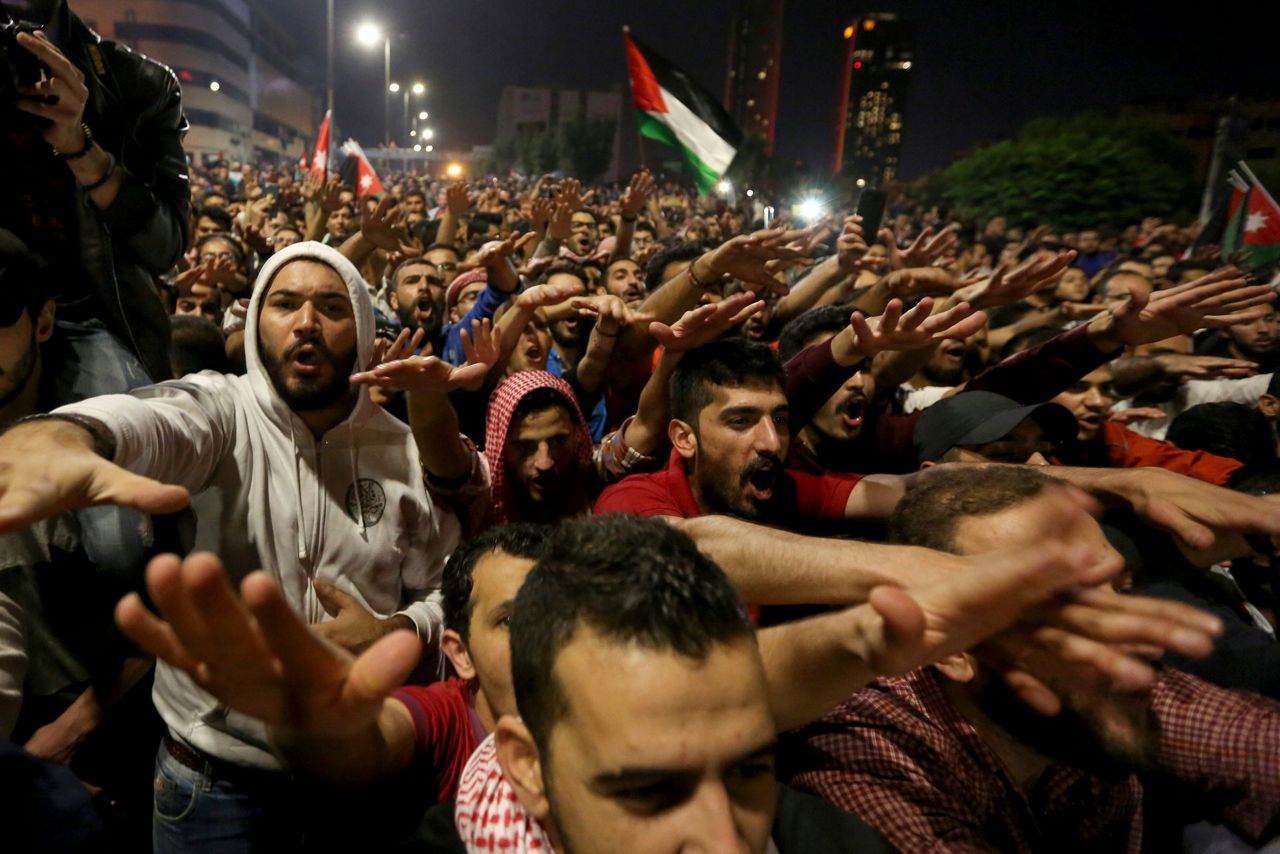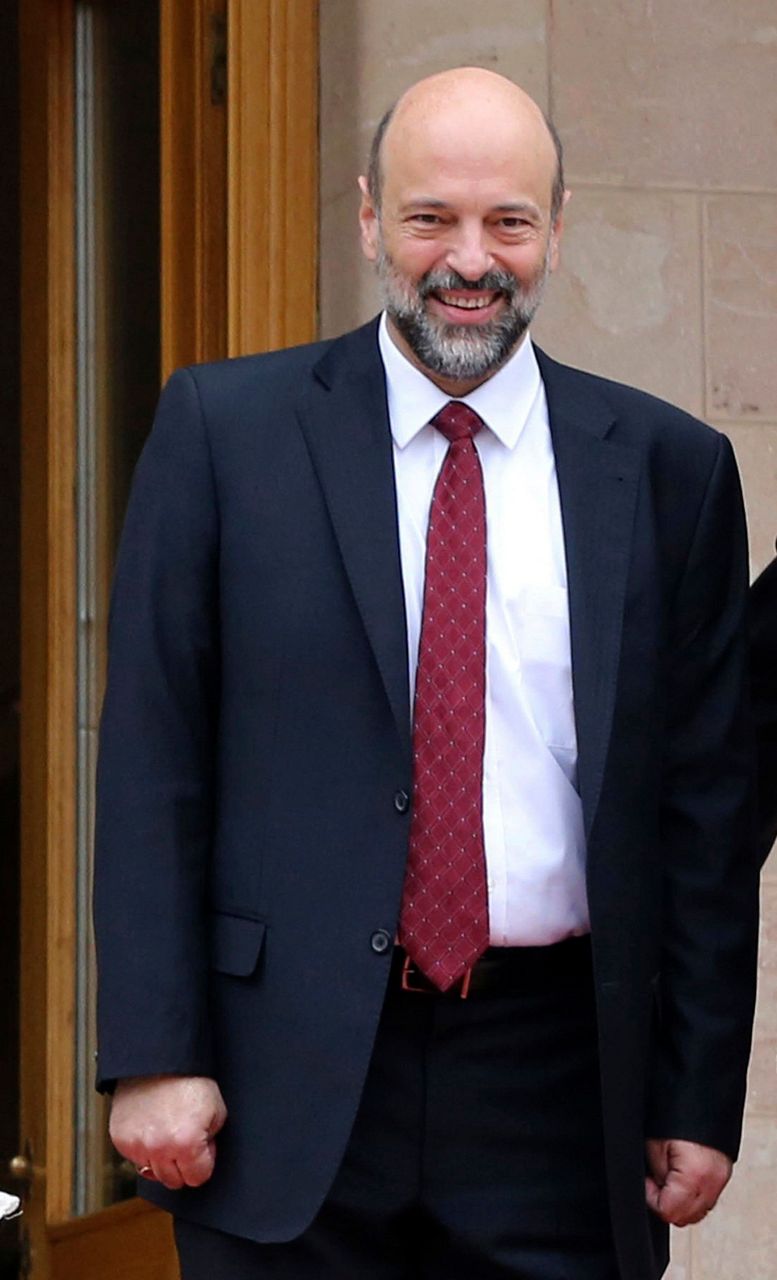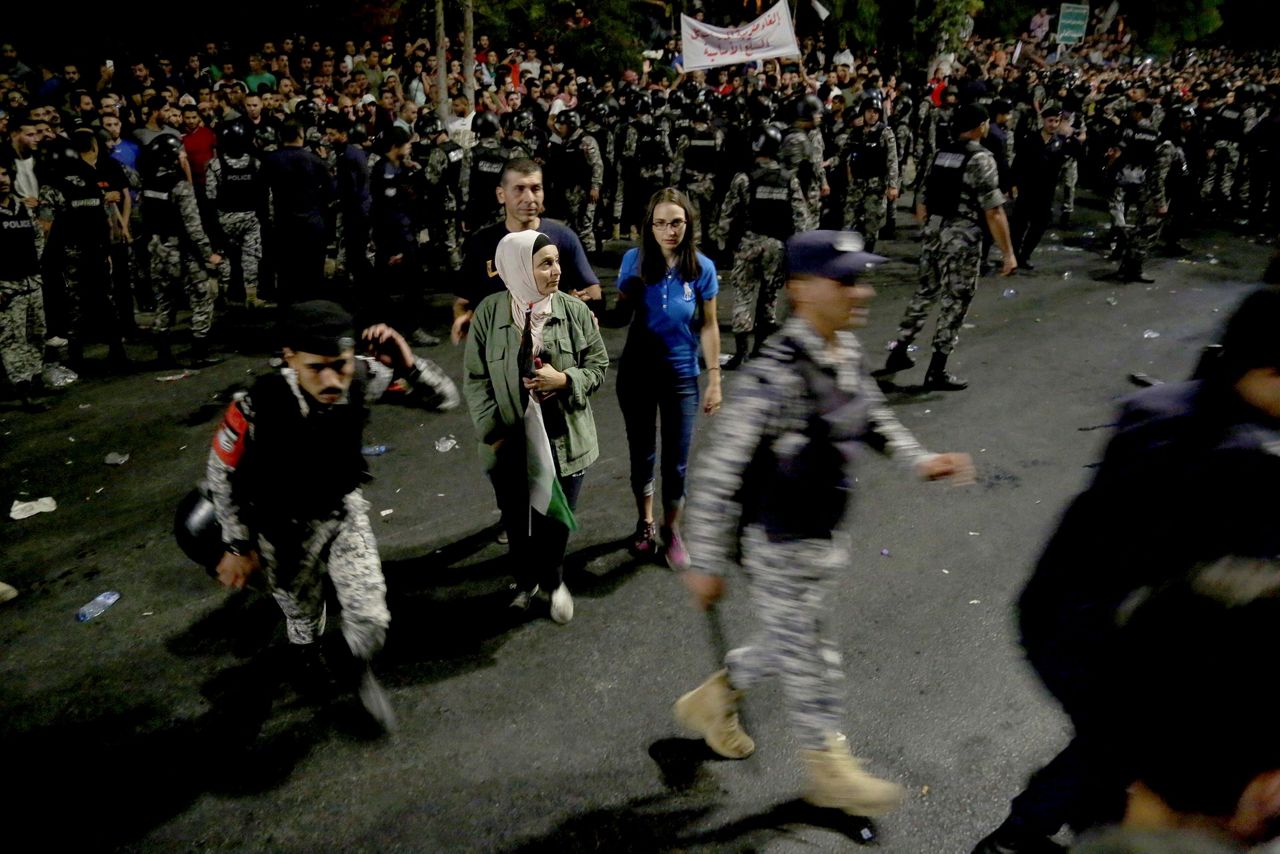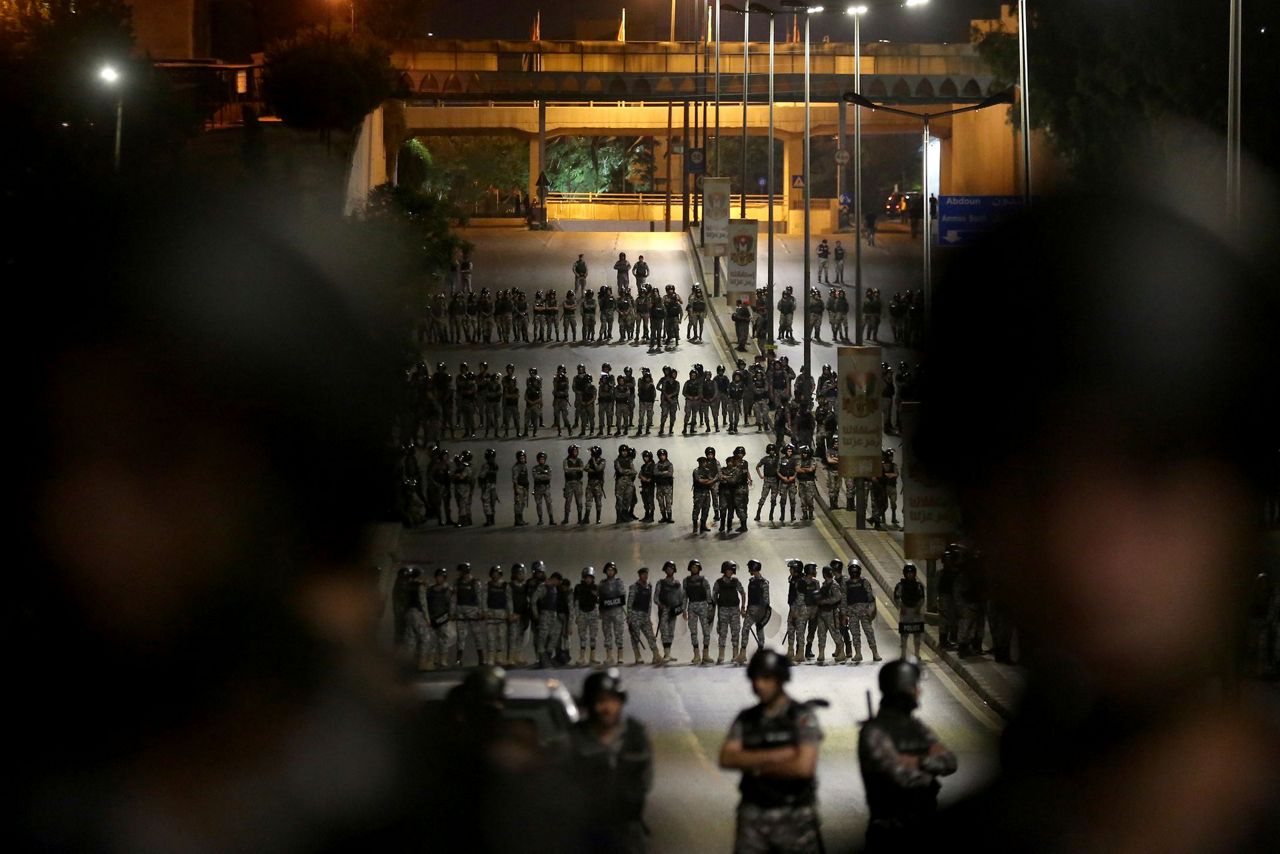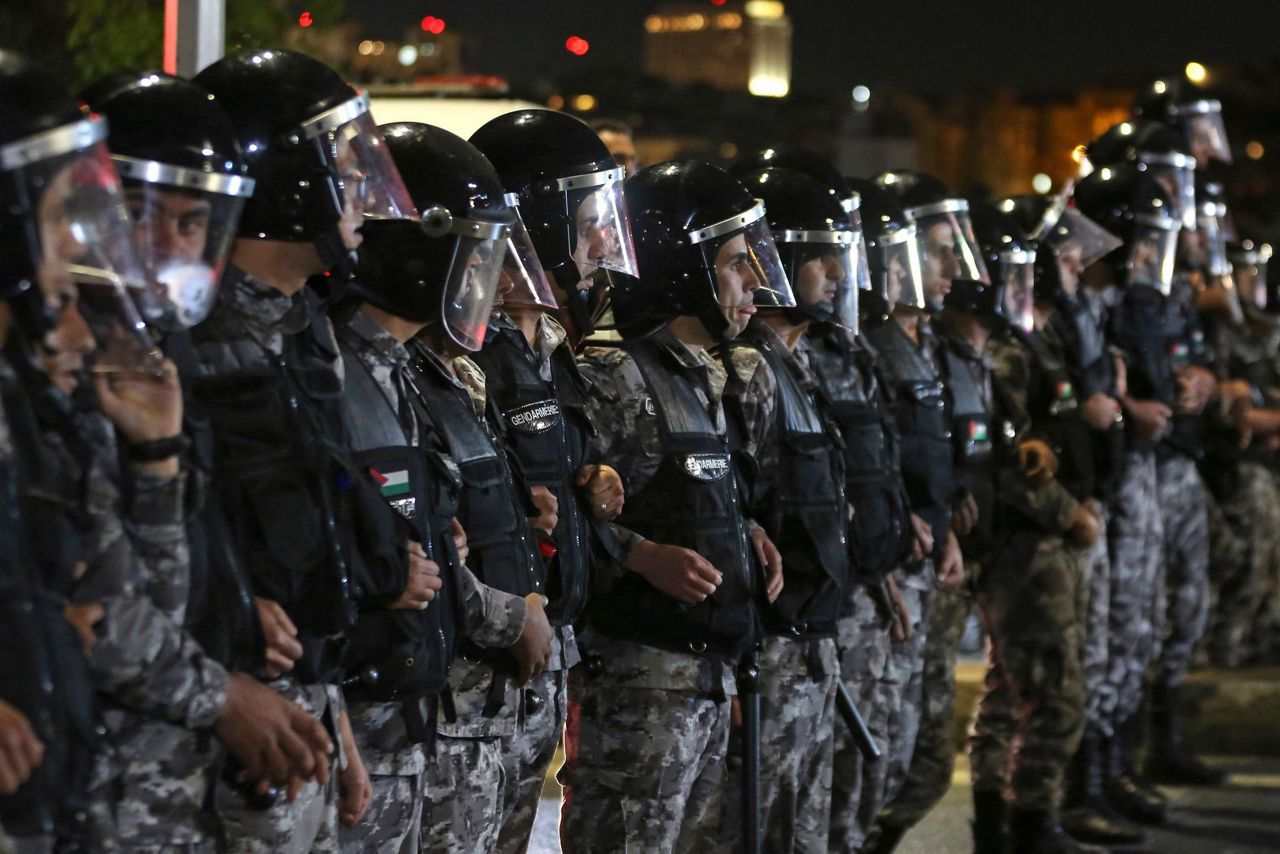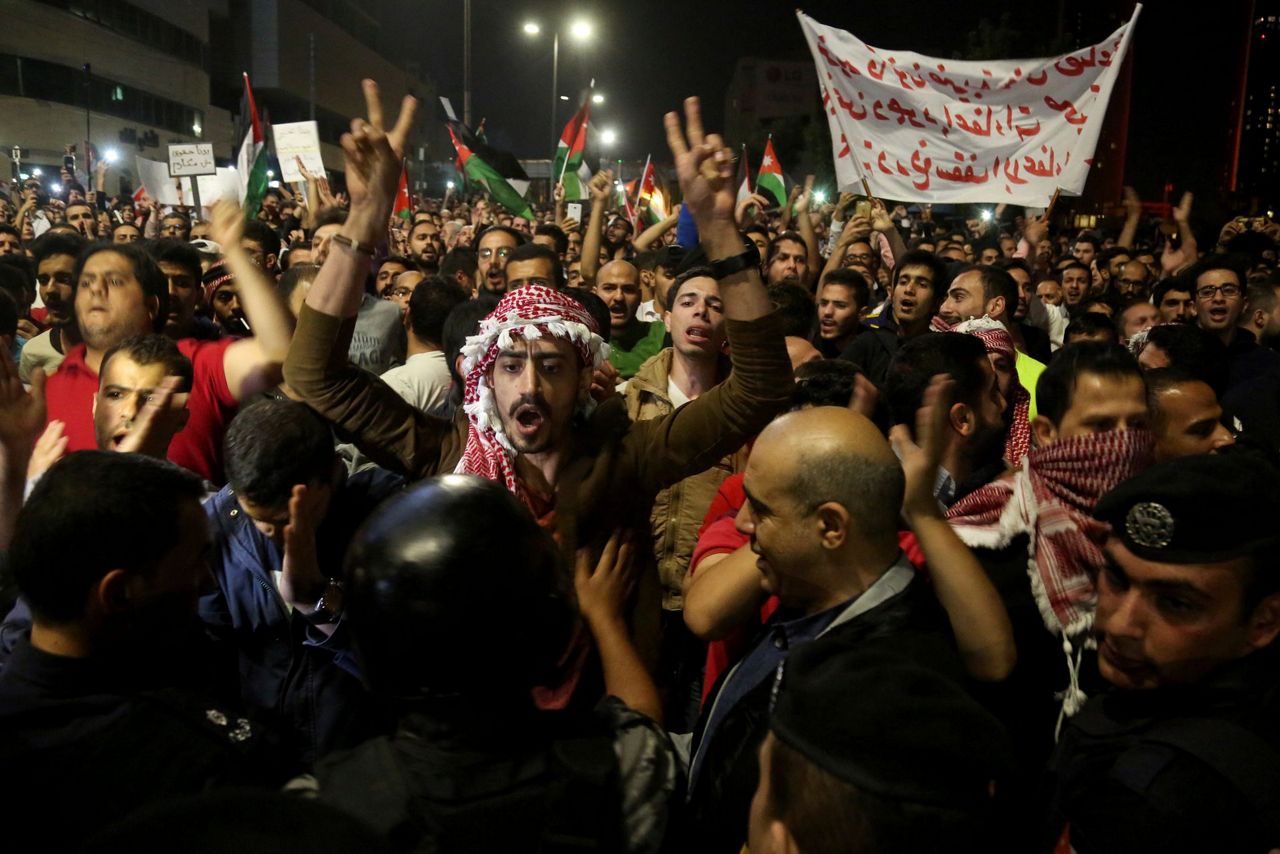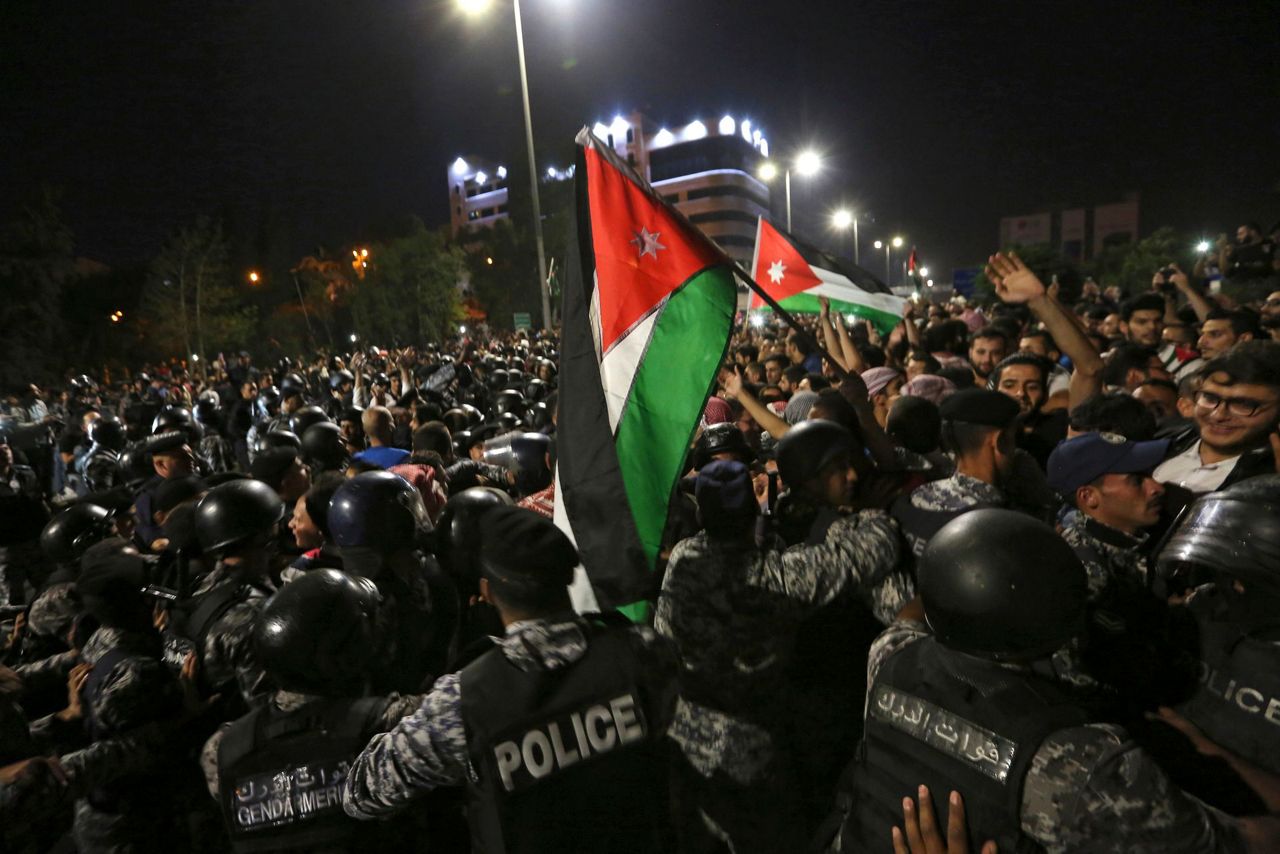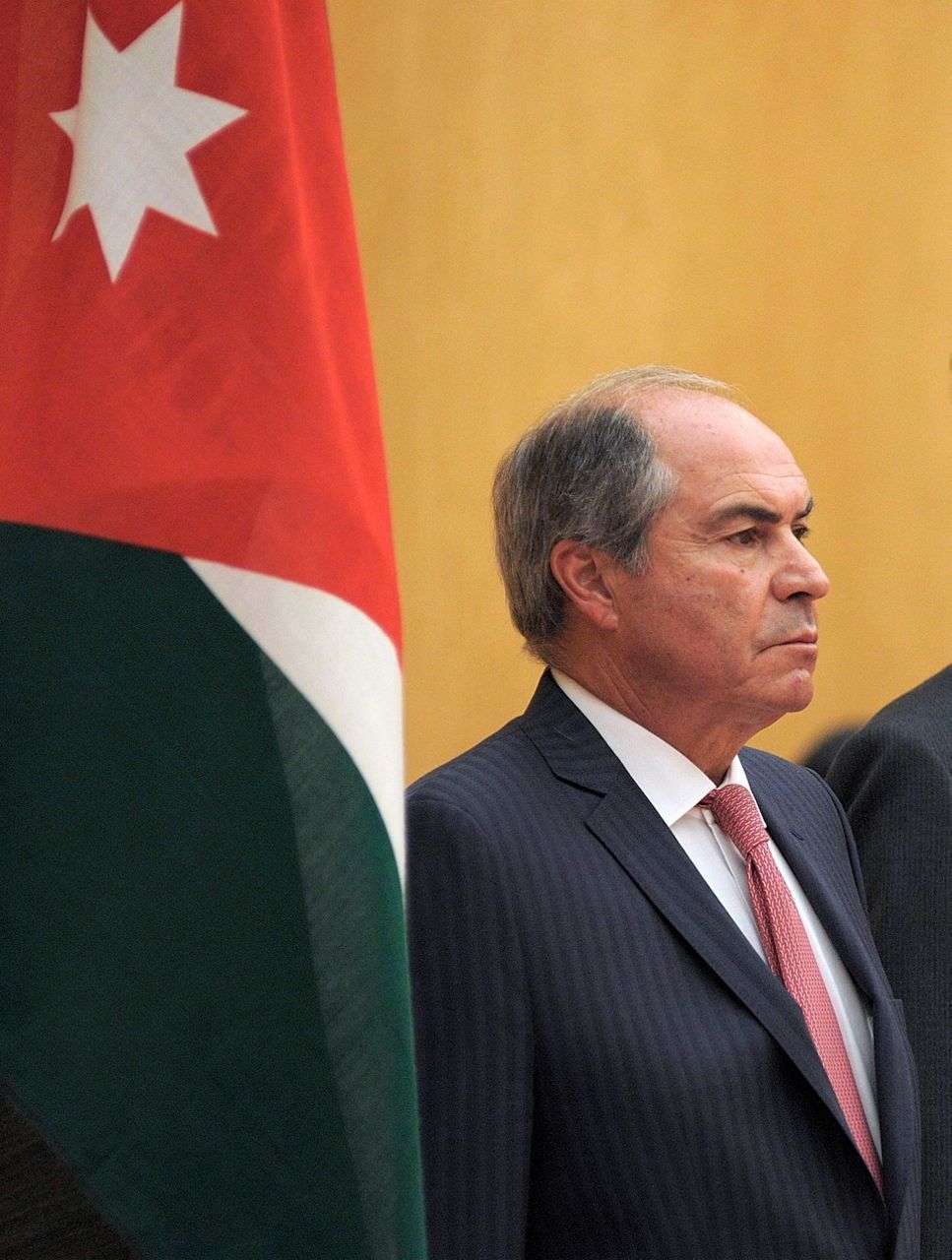AMMAN, Jordan (AP) — Jordan's King Abdullah II on Tuesday appointed a new prime minister, the royal palace said, naming a leading reformer as head of government in hopes of quelling the largest anti-government protests in recent years.
Cabinet member Omar Razzaz, a Harvard-educated former senior World Bank official, replaced Hani Mulki, who quit Monday amid widening protests against his government's austerity program, including a planned tax increase. Razzaz served as education minister in the outgoing Mulki government.
The king retains final say on all policy issues, and presumably would also define the parameters of any economic and political reforms sought by Razzaz.
In the appointment letter addressed to Razzaz, the monarch called on the new government to conduct a comprehensive review of the tax system and produce a new tax bill, in cooperation with parliament, unions and other groups.
He also expressed empathy for ordinary Jordanians who have long complained that they are being asked to pay taxes for poor services. Critics say the current tax proposal unfairly targets the poor and the middle class.
It's not clear if the appointment of Razzaz will defuse the growing public anger over a political and economic system widely perceived as corrupt and exclusionary, with benefits reserved for small elites.
Jordanian analyst Helmi Asmar said that it remains to be seen if Razzaz will receive a reform mandate. "Is he the one to run the country, or the old machine and the old system?" he asked.
"We hope for the good, but until now we haven't seen enough signs to be optimistic," said Asmar, who writes for the Ad Dustour newspaper.
Protest organizers said they would keep up the pressure, including a one-day strike set for Wednesday, until the tax proposal has been shelved. On Tuesday evening, hundreds of demonstrators began gathering near the prime minister's office for the seventh consecutive street protest.
The embattled Mulki, who had led the push for the unpopular austerity measures, resigned following several days of mass protests across Jordan against the tax plan, the latest in a series of economic reforms sought by the International Monetary Fund to get the rising public debt under control.
The kingdom has experienced an economic downturn in part because of prolonged conflict in neighboring Syria and Iraq, and a large influx of refugees in recent years. The official unemployment rate has risen above 18 percent, and it's believed to be double that among young Jordanians.
In a sign of continued unrest, protests continued even after Mulki's resignation. Several thousand Jordanians marched toward the prime minister's office in the night from Monday to Tuesday.
Riot police scuffled with some of the marchers, trying to keep them away from the building, but the fifth street protest in as many days was largely peaceful.
Protesters said personnel changes at the top are irrelevant without fundamental reforms.
Razzaz holds a doctorate in planning and a post-graduate degree in law from Harvard. He taught at the Massachusetts Institute of Technology from 2002 to 2006. From 2006-2010, he served as the World Bank's country manager in Lebanon, with emphasis on private sector development and infrastructure finance.
Razzaz then returned to Jordan to head the Social Security Corporation, and from 2011-12, led the national team responsible for preparing a national employment strategy.
___
Associated Press writers Mohammed Daraghmeh in Ramallah, West Bank, and Maamoun Youssef in Cairo contributed to this report.
Copyright 2018 The Associated Press. All rights reserved. This material may not be published, broadcast, rewritten or redistributed.



